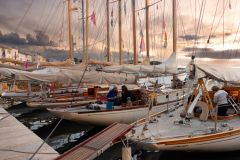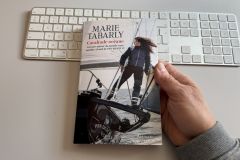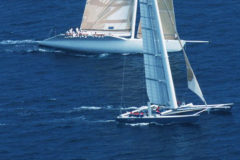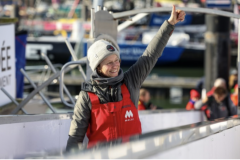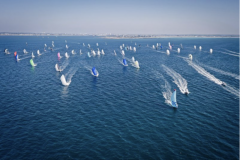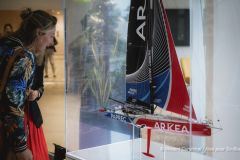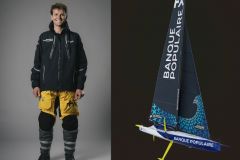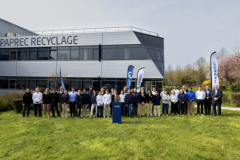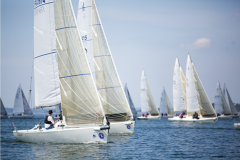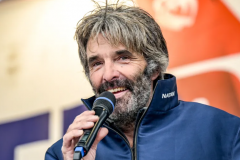This will be your third participation in the Vendée Globe, after two withdrawals due to breakage in the last two editions
The Vendée Globe is the goal for this year and for the program with Maître Coq. We started this partnership at the end of 2012 just before the Vendée Globe and our goal was to start again in four years. The idea is to say that when you start doing something, you do it well. With my two retirements, I have to go back and I'm aiming for victory.
But I also say to myself that even if I manage to win this year's Vendée Globe, it's not certain that I won't go back the following years�
You are among the favorites for the event, does that add extra stress?
No, not at all, it suits me very well. I prefer it to the opposite. If the others have this look, it's because we did a good job, both me and my team. We won the Transat New York to Vendée (Les Sables-d'Olonne) with Maître Coq in 2016, the Solitaire du Figaro three times (2005, 2011 and 2014), the Transat Jacques Vabre with Jean-Pierre Dick in 2011, etc.
It's a good sign to be among the favorites, even if the idea is not to gargle. But it's still nice to be here (at the start of the Vendée Globe) in the shoes of a favorite. After that, everything remains to be done! I have a good preparation behind me, but it gives me homework, and at the same time it makes me feel good. I don't have the right to fail, because everything we did before is so good!
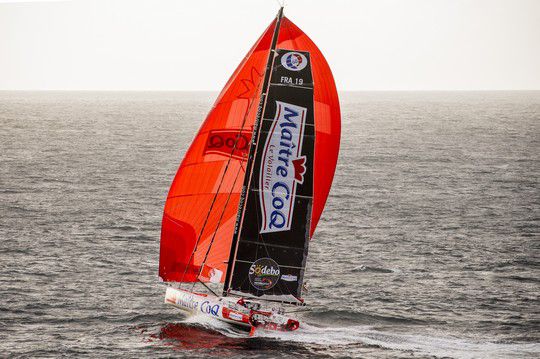
You won the Transat New York Vendée with Maître Coq, already equipped with foils? Why did you invest in foils on an old generation boat and what does it change?
At the beginning, we asked ourselves a question " Are we aiming for performance or reliability? "And then it was up to the skipper to give his answer. So it was a personal reflection, with the ambition behind it, to do the Vendée Globe. We looked at how to improve performance and we came to the conclusion that foils were efficient tools that were adapted to our boat. We put all our energy and our budget into research and studies. I wanted performance and I was ready to take risks.
We did everything, step by step, with a lot of studies, then tests, then training, first solo and then in regattas. It took time, but we got there and we are convinced that today we have a boat capable of being among the best.
In terms of what it changes, the boat goes faster at fast speeds, so it's even more uncomfortable than before. We have also gained in terms of stability. Before, with the classic ballast and daggerboard version, the boat filled up a lot and heeled a lot too.
We had to start from scratch to redo everything and we are starting to have something accomplished. We could have worked on it for another 6 months to have something even more advanced. But it's not only in terms of navigation that we had to review everything, we also had to review our spreadsheets, our data, etc.. We are only at the beginning of the foils, but I think it has a great future!
Do you feel ready? Do you have full confidence in your boat?
We were lucky not to have any problems with the foils or the pits, so yes, I feel quite ready.
How did you prepare yourself, both on the water and physically?
On the water, I still have the same habits, in Port-La-Forêt (Pole Course au Large), we have the attendance to the courses. I have also done quite a lot of offshore sailing on my own and I have been working with a physical trainer for 4 years. In general, we do 3 to 4 sessions when we are not sailing and 2 sessions when we are sailing.
But you don't just prepare for the Vendée Globe, there are also intermediate stages like the Transat Jacques Vabre or the Figaro, which allow you to prepare yourself, to keep up or to improve your level on the water. That's why I took part in the Solitaire du Figaro in 2015.
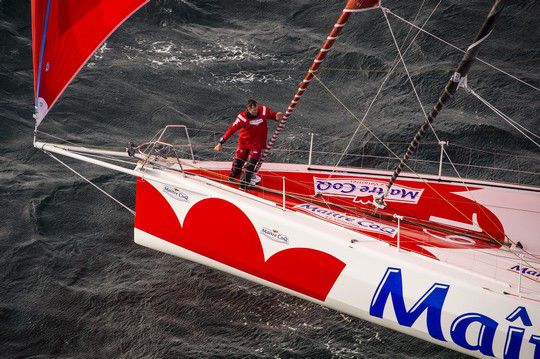
The first few days of the race are really important. A week before the start, I get into race mode and start thinking about the start and the course, studying the weather, etc. You mustn't miss the start because it can jeopardize everything. So the last week is really about concentration.
What is your biggest apprehension about this world tour?
My biggest apprehension is that an accident could happen to another participant because we are always more afraid for others than for ourselves.
How do you deal with being away from your family for about 3 months?
You can call or email each other without restriction, but you have to do it in a measured way. Ãeuros terre, they have their routine, they have taken their rhythm so we must not upset everything. They did not choose, it was me who decided to leave, so when you have your little problems or worries, you should avoid calling to complain.
And then you have to be prepared to get into your bubble and think only about the race. It's part of a pre-race routine. There's no point in dramatizing the event! When I leave for the Solitaire du Figaro, I also leave for 4 weeks, it's something we are used to.
Are you bringing an unusual object? Which one is it?
I'm not very fond of grigri or teddy bears, but I intervened in the school of my youngest, who is in CM1. They prepared a big notebook with drawings and poems that I will leaf through at sea.
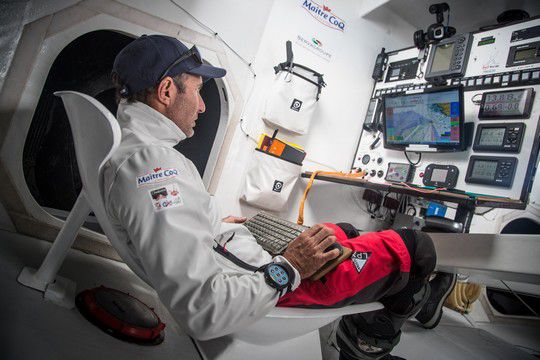
Do you get the blues and what do you take to cheer you up for the Vendée Globe?
There are many, because solo sailing is not easy. But you have to accept your choices, whether they are good or bad. The blues also come a lot with the little technical problems or with the ranking. But we remember that we have already done other races before and that we were already in a bad position and yet everything ended well! Nothing is played, it is a race which is very long!
How many days of food do you plan to eat? Are you bringing something specific that you love?
I take 85 days of food, packed per week. It is not a different menu every day. For the most part it's freeze-dried food, but I also take canned food, vacuum-packed deli meatsâeuros¦ I only take things I know, I don't try anything new so I don't get any bad surprises. Otherwise as a small pleasure, I bring butter, even if it is a little rancid, that I spread on wheat patties (fajitas type).
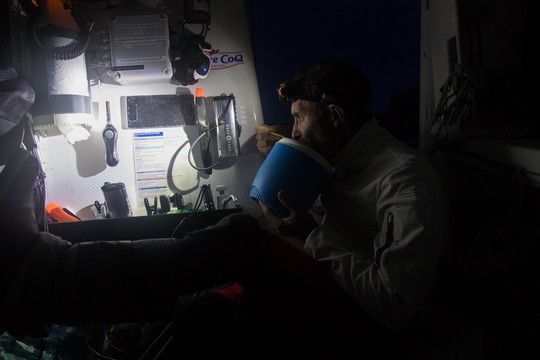
Are there any moments of relaxation and how are they occupied?
We almost never stop sailingâeuros¦ The moments of relaxation are when we rest, when we sleep, eat, take care of ourselves or wash ourselvesâeuros¦ When we are at the helm, there are moments when our mind wanders a bit so we have time to think a lot.





